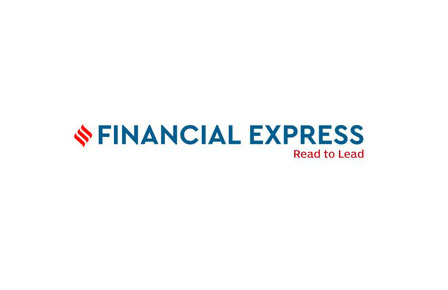Credit and Finance for MSMEs: M1xchange has been doubling the transaction volume on its platform year-on-year. In FY22, it discounted invoices worth Rs 12,500 crore for MSMEs versus Rs 5,000 crore in the previous fiscal, and the expectation for the ongoing financial year is to hit Rs 25,000 – Rs 30,000 crore mark.
According to the data by the Reserve Bank of India (RBI), the value of transactions undertaken on TReDS platforms in FY22 doubled to Rs 34,362 crore from Rs 17,080 crore in FY21, and more than tripled from Rs 11,165 crore during FY20.
Credit and Finance for MSMEs: The invoice discounting platform for MSMEs M1xchange, promoted by Mynd Solutions, has achieved breakeven this financial year and is expected to be profitable by next fiscal, its CEO Sundeep Mohindru told FEAspire (erstwhile Financial Express SME).
“In the H1 of this fiscal we discounted invoices worth Rs 10,000 crore and with that our business reached breakeven. For H2 FY23 we expect to do bill discounting worth Rs 15,000 crore as Diwali onwards the economic activity picks up in the country,” he said.
M1xchange has been doubling the transaction volume on its platform year-on-year. In FY22, it discounted invoices worth Rs 12,500 crore for MSMEs versus Rs 5,000 crore in the previous fiscal, and the expectation for the ongoing financial year is to hit Rs 25,000-Rs 30,000 crore mark.
The high growth numbers are on the back of increasing adoption of Trade Receivables Discounting System (TReDS) by private players. “Private world is keen to factor bills of their MSME suppliers on TReDS because they see a value addition in it for their business. On TReDS, their SME suppliers can get discounting done at the 5 – 8 per cent rate of interest, otherwise, they would have borrowed at 12-18 per cent per annum outside the platform. If the cost of doing business is decreasing for the supplier by 5 percentage points, the benefit gets passed on to the corporate buyer and there is a win-win for both,” said Mohindru.
On TReDS, one of the key reasons behind the competitive rate of interest is that the financial institutions underwrite the invoices based on the stronger balance sheet of the corporate buyer instead of the smaller MSME supplier.
There are around 1,000 corporate buyers enrolled on M1xchange out of which 920 are private players and the rest are central public sector enterprises (CPSEs). Together they have accepted receivables of 12,500 MSMEs from 1,100 cities, 60 per cent of which are micro and small entities.
Interestingly, this trend of the transaction volumes growth is seen on the other two TReDS platforms as well – Receivables Exchange of India (RXIL — a joint venture between SIDBI and National Stock Exchange of India) and Invoicemart (joint venture of Axis Bank and mjunction services).
According to the data by the Reserve Bank of India (RBI), the value of transactions undertaken on TReDS platforms in FY22 doubled to Rs 34,362 crore from Rs 17,080 crore in FY21, and more than tripled from Rs 11,165 crore during FY20.
There is also a regulatory push for companies to adopt TReDS. The government has made it mandatory for all companies with a turnover of more than Rs 500 crore to onboard one of the three TReDS exchanges.
The RBI also recently announced that it plans to allow all NBFCs to participate on TReDS which will enable BBB, BBB- and other firms on lower investment grade to get the bills discounted for their MSME vendors, further enhancing the transaction volumes. Banks are seen to be risk averse and prefer factoring for companies that are rated in the range of AAA to BBB+, added Mohindru.
M1xchange also recently introduced two initiatives: Small to Small Factoring product for factoring bills of MSME buyers using a cash flow-based credit model and Trade Financing Services Platform (ITFS) at Gujarat-based International Financial Services Centre (IFSC) for providing international trade financing services. These projects are currently in the testing phase and are likely to be launched commercially by next fiscal.



